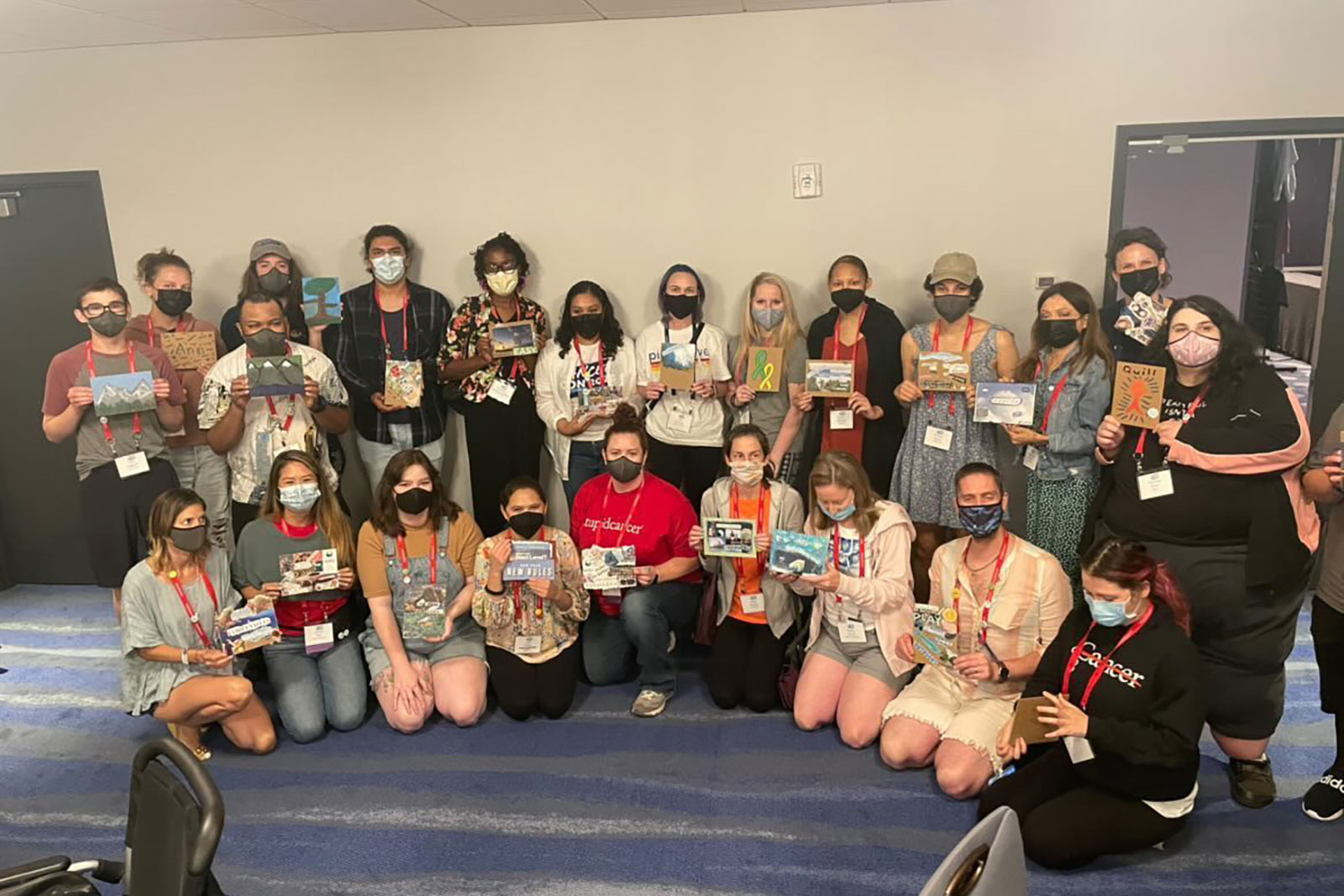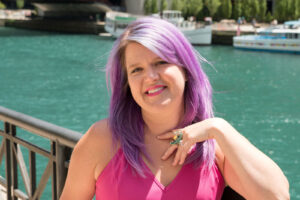Active cancer treatment is over… now what? Young adults finding themselves at this milestone can face a variety of new challenges, including reintegrating into the world outside of cancer treatment, establishing new lifestyles, reconnecting with their loved ones and returning to school and work.
Throughout the month of February, Stupid Cancer hosted a weekly discussion series, titled “Mental Health After Treatment,” to address these challenges directly with individuals experiencing them. Each 90-minute session began with a presentation from a mental health professional, focused on a theme for that particular week. Participants then split into small discussion groups with questions to guide peer-to-peer conversations around their personal experiences with the given topic. These weekly themes included “Post-Treatment Blues” (facilitated by Sheena Pruitt, LGSW), “Who Am I Now?” (facilitated by Julia Leavitt, MSW, LCSW, OSW-C), “Survivor’s Guilt” (facilitated by Alex Huffman, MSSW, LCSW, OSW-C), and “The Long Haul” (facilitated by Kristy Case, MSW, LCSW, OSW-C).
Established in 2007, Stupid Cancer is a nonprofit organization serving the adolescent and young adult (AYA) cancer community through digital and in-person programs. Stupid Cancer Program and Community Coordinator Avni Amin shares that a major focus of Stupid Cancer’s programming is “on-the-ground communication with community members.” The organization has long facilitated online social meetups, hosts an annual CancerCon, and offers structured programs such as this discussion series.
The “Mental Health After Treatment” discussion series was open to all individuals identifying as part of the AYA cancer community, not only those who had recently completed treatment. Amin explains that individuals well into survivorship still find use in this type of program, because an individual’s cancer experience doesn’t abruptly stop at the end of their treatment. The understanding with this kind of program, she says, is that “the journey is not over whatsoever.” In fact, the post-treatment period is when many individuals first discover programs and support outside of their conventional healthcare team.
Amin says that mental health post-treatment tends to be the most popular topic among Stupid Cancer’s program offerings, because it touches so many throughout the cancer community. Mental health challenges can be found at the core of many AYA-specific areas of interest, she explains, including fertility, romantic and family relationships, and career and finances.
The post-treatment period can be a particularly difficult transition, as direct support from one’s healthcare team tends to drop off. “One second, you’re the focus of all your providers — you’re receiving care constantly, and your questions are always answered. Then, you’re thrown back into ‘normal’ life, work or school, wondering what to do next,” Amin says. Structured programs such as this series provide not only an opportunity for individuals to learn from professional experts, but also to participate in guided discussions and connect with peers directly, aiming to ease this transition, Amin says.
Below are some key takeaways and discussion prompts from the series:
- You are now facing yet another unfamiliar chapter, which presents its own set of challenges separate from what you faced during treatment.
- Try to identify the unique challenges and triggers you are personally experiencing in survivorship.
- It’s okay to feel like a completely different person than who you were pre-cancer.
- Many of the changes to your body and mind are not in your control. Instead of forcing yourself to accept all of these changes, start by first acknowledging them.
- Allow yourself ownership of your own narrative — who are you now and what’s important to you?
- Guilt can take many different forms. You may feel guilt for the complexity or effectiveness of your treatment compared to others’. Or perhaps you feel guilty for the support and help you received during treatment.
- While guilt is a common experience, it can hinder our healing process. Give yourself permission to work toward your own healing, too.
- Survivorship doesn’t follow a set timeline; cancer may never be “over.”
- What brings you meaning and purpose in survivorship?
Looking ahead to upcoming programming, Amin shares that for the first time in over two years, the Stupid Cancer Storytelling Open Mic event will take place in Manhattan on March 22. Preparations for a two-event CancerCon are well underway, with a digital edition coming up from April 16 to 30 and in-person CancerCon scheduled for August 17 to 20 in Atlanta.

Amin explains that CancerCon gathers “hundreds of AYAs into one space for a fun and emotional weekend” to enjoy discussion groups, educational sessions, panels, and social activities. With the digital edition of CancerCon in April, she adds, Stupid Cancer is able to reach even more community members who are unable to attend in person due to active treatment or other travel constraints. With this two-event model, Stupid Cancer aims to “meet every community member where they’re at, so anyone who wants to can attend CancerCon,” Amin says.
Stupid Cancer mission and more information: Stupid Cancer helps to empower everyone affected by adolescent and young adult (AYA) cancer by ending isolation and building community. Learn more at stupidcancer.org.







